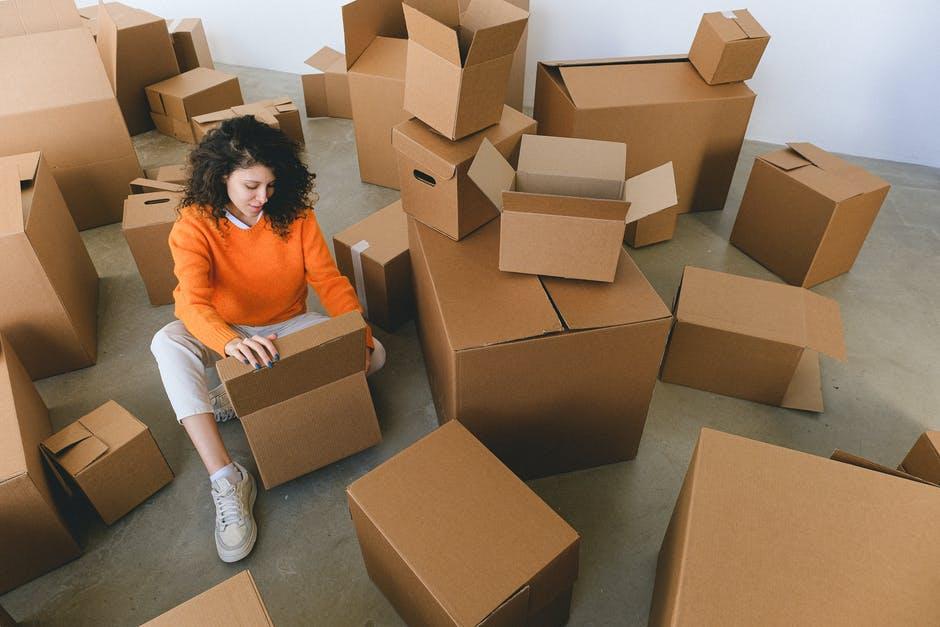If you are running out of storage space in your house or need a place to store your belongings while you move to a new home, you will most likely need to rent a storage unit. When looking to rent a storage unit, there are many different factors you will need to keep in mind.
For example, how much are you willing to spend each month? Where do you need to have the storage facility located? Do you need a full-service facility?
How long do you plan on having the unit? Renting storage units is more than just picking a place and moving in; there are many variables you need to consider.
If you want to learn more about the different factors that affect the cost of a storage unit, you will want to keep reading below. We will go over all you need to know about storage units and who you can reach out to for more help.
Factors Affecting Price of Storage Unit Cost
Storage units across the United States come in varying sizes and prices, depending on many different factors. For example, the purpose of the unit, availability, and rental contract length can influence the cost of your storage unit.
Location
You typically see storage units in densely populated urban areas. There are a few in some rural locations, but there are typically only a few storage companies in those areas.
These units will cost more in urban areas due to supply and demand. If you want a better idea of how much storage will cost close to where you currently are, you can quickly search online for "storage unit near me."
Unit Size and Availability
Storage unit prices vary by their size. In general, the larger the storage unit, the higher the monthly cost. Although they cost more, they typically cost less per square foot.
The availability of units can also drive up their monthly fees. If there is a high demand for these units in the area, the costs will be much higher than usual to help meet the demand.
Accessibility is another factor that will affect the price. For example, an older storage unit with drive-up access will most likely cost less than a newer storage unit with several levels of units.
A storage location with 24-hour access, employees on-site, and security cameras may charge more than their local competitors, who do not offer these added benefits.
Purpose of the Unit
Most people use storage units to store boxes of clothes, houseware, extra furniture, cars, or their RVs. Some people store more delicate or valuable items that need climate-controlled environments.
The cost to store your RV or car is typically more expensive than someone storing furniture or extra household items in a standard unit. If you wish to have a climate-controlled space, you can also expect to pay more than a traditional storage unit.
Season
The most popular times to buy a home and move are during the Spring and Summer months. During those times, storage units cost more to rent than other times of the year because people need that extra room to store their belongings between moves.
They also use their storage space to store overflow items that won't fit in their new homes. If you can, it is best to consider renting a storage unit during the fall and winter seasons to save money.
The most popular unit most families go for is a 10 foot by 20-foot unit. This is because it can fit items from two to three-bedroom houses. The demand and availability of this unit can drive up the price where you live.
Rental Contract Length
The duration of your rental contract may affect the price of your storage unit. Some facilities allow you to rent on a month-to-month basis, while others have a minimum rental period of about three to six months.
Keep in mind that even if you sign a three to six-month lease, you may have to pay for those months upfront when you sign the contract. Make sure that you ask about how payment works before you sign anything.
How Much Does It Cost to Build Storage Units?
The most common storage unit facility to build is around 60,000 square feet, and it costs about $45 per square feet to build. Of course, the cost per square foot will vary based on the location you decide to build.
You will also want to consider the cost of hiring contractors to build your storage unit, the cost of building permits, and the cost of your utilities.
Are Pods Cheaper Than Storage Units?
Portable on-demand storage, also known as pods, are portable storage units that get dropped off at your home for you to fill with your items. In general, these pods are a cheaper option, depending on how you plan on using them. The delivery fee is about $80.
If you want to store the pod at a pod storage location, it can cost you around $149 a month. The final price for your pod will depend on your location, the size of the pod, and the amount of time you need to have the pods.
Pods are an excellent moving option because they allow you to fill them up with your personal items at your own leisure. Once you have everything packed, you can have your own moving company come to pick it up and move it for you.
Make sure that you reach out to a reputable moving company before ordering your pod. This ensures that both your pod and your moving company have the necessary availability to serve you.
What Is the Average Cost of a 10x10 Storage Unit?
The cost for a 10x10 storage unit will depend on the factors listed above. On average, most standard 10x10 units cost about $180 a month to rent. If you wish to rent a climate-controlled unit, you can expect to pay around $220 or so a month. Keep in mind that if your storage location has 24-access or additional security measures, the cost of your unit will be higher.
Additional Costs and Considerations
When creating your budget for storage unit prices, you will want to consider any additional features. These additional features can include if the facility is a full-service storage unit, indoor or outdoor unit, and any storage unit delivery costs.
Self-Storage vs. Portable Storage
A self-storage unit is best for those in-between homes and needs somewhere to store their boxes and furniture. It is also beneficial for those who need to store away any seasonal decorations or put away extra items to reduce clutter.
With a self-storage unit, you are responsible for transporting and storing your items inside the unit. Self-storing units are usually less expensive than full-service facilities, making them a more budget-conscious decision.
Portable Storage
As mentioned earlier, portable storage units, also known as pods, are delivered to your house so you can pack your items in the unit at your leisure. You can store these pods on your property if you would like.
Make sure to check in with your HOA rules to ensure that you are in compliance. Some HOAs do not allow people to put portable storage units in the front of their homes for more than a specified amount of time.
These units are beneficial for long-distance moves as well. You can pack all of your belongings inside the pod, and you can have your mover transport the pod for you.
Full-Service Storage Units
Full-service storage facilities, also known as on-demand storage or valet storage, will come to pick up your items and deliver them to a storage unit on your behalf. You have the option to schedule the pickup or return via an app on your phone.
Going through a full-service facility is more convenient than transporting your items on your own. Many different facilities will take photos of your belongings and catalog them once they're stored away. While some of these facilities offer competitive pricing, they are generally more expensive than the other storage options.
Outdoor vs. Indoor Storage
Indoor storage units are located inside a building and are generally climate-controlled. There are a few indoor storage units that are not climate-controlled if you want a cheaper indoor option.
If you want a unit with more security and protection from the elements of rain or other inclement weather, you will want to opt for an indoor storage unit. Because of these added benefits, indoor storage will cost more.
Outdoor storage is typically located behind a passcode-protected fence, which is still secure. These units are best for vehicle storage or if you just want an outdoor option that you can drive up to.
Are Storage Units Worth It?
The answer to this question will depend on your situation and how long you plan to use the unit. In general, storage units are a waste of money, especially if you are most likely not going to use the items in storage.
As mentioned above, the average cost for a storage unit is around $160 to $750, depending on the size, location, length of your contract, and other variables. To put it into better perspective, if you have a smaller unit that costs about $100 a month, you will spend $1,200 a year to store items you may or may not use.
It’s Inconvenient
If you need to pick something up from your storage unit, you will have to drive to the unit, and dig through your boxes to find what you need. If your unit does not have 24-hour access, you will have to go during their business hours, which are most likely when you're at work.
If you can't fit these items in your house, you most likely don't need them at all. There are many ways you can get rid of your items.
You can use websites like LetGo to list your items for someone else to purchase. If you don't want to sell them, you can always drop your items off at a thrift store.
There Are Possible Hidden Fees
On top of your already pricey monthly storage fee, many storage facilities add on extra fees for mandatory insurance, climate control, and security features. Over the months, these "small monthly fees" can quickly add up.
Your Goods Reduce in Value
If you have items in storage that you will want to sell at some point, you may want to go ahead and take them out from storage. The longer you keep them in the storage, the more they depreciate.
Instead, you can opt for a yard sale, or, as mentioned earlier, you can sell them online. Even if you don't think someone will buy your item, it doesn't hurt to list it. You would be surprised about the things many people are looking to purchase.
Increased Security Concern
Yes, many storage units have on-site security or security cameras to keep an eye on your unit, but is that enough? When you store your belongings in a storage unit, you trust someone else to watch over them. You honestly have no control of how secure a facility is.
Can I Store My Vehicle?
As mentioned above, you do have the option to store your vehicle in a storage facility if needed. Many people store their cars because they don't want to drive long distances.
Did you know that there is a moving service for your vehicle? If you already plan on using a portable storage unit, you can also benefit from hiring a reputable auto transport company to move your vehicle.
Schedule Your Move Now!
There are many different types of storage units available for you to use, depending on the number of things you need stored and where you need them stored. If you are moving from one house to the next, you should opt for a portable storage unit so that you won't have to worry about moving your items on your own.
Transporting your vehicle is another essential part of moving, especially if you have a long-distance move. If you are ready to schedule your move, contact us now.



